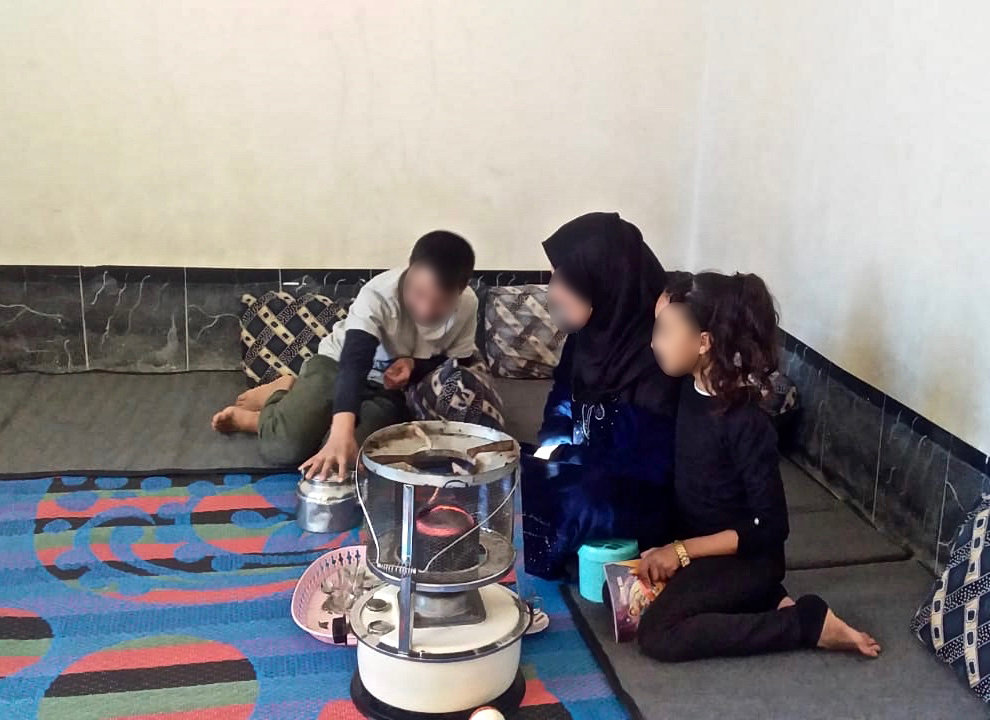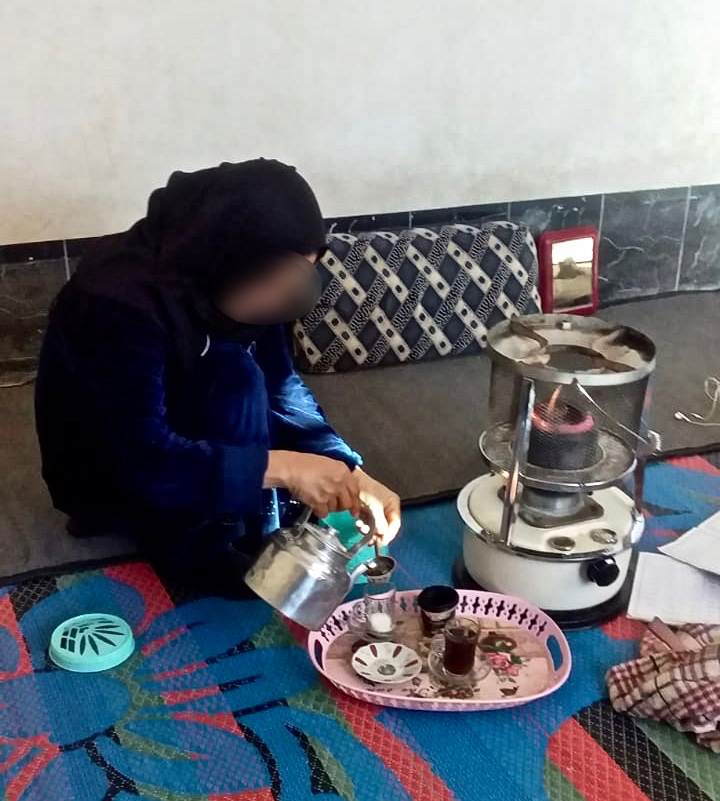Reclaiming My Home: Umm Rehab’s Journey
Story by Sara Hamdy, NP Iraq
“I thought I would never see this house again from the inside.”
Umm Rehab, a 44-year-old mother to six children and the head of her household, has had her life uprooted many times over the last few years, from being forced to travel from her small town in Iraq to Syria against her will, relocating to an Iraqi displacement camp, and finally returning to her village only to find her house occupied. Now, with Nonviolent Peaceforce’s support, she’s finally been able to reclaim her home.

From living in Syria to a displacement camp in Iraq
A few years ago, Umm Rehab’s husband joined ISIS and forced her to travel to Syria against her will.
“Living in Syria was tough,” remembers Rehab. Thousands of women were put into similar situations.
Following ISIS’s decline in 2017, Umm Rehab returned to Iraq with her children and found shelter in a displacement camp near Mosul.
During the war, 6 million Iraqis fled their homes to escape from violence. Four years later, an estimated 1.2 million people are still displaced in Iraq—while about 5 million people have returned to their areas of origin.
The camp became their home for more than two years. However, in the final few months of 2020, Iraq’s government announced the closure of multiple Internally Displaced Persons (IDP) camps. Umm Rehab lived in one of the camps that closed.
“We had a decent life there, but suddenly, after two years, it was taken away from us,” she shared.

You support the return home and fighting stigmas
In November 2020, when the government announced the camp’s closure, the majority of IDPs traveled back to their areas of origins. Like many other families, Umm Rehab and her children feared for their basic safety and security after leaving the camp. And, when she returned to her original home, she found that a stranger had occupied it in her family’s absence.
“You do not know how it feels to be homeless, scared, and thinking constantly how you will provide for your family,” Umm Rehab said, reflecting on her fears at the time.
Public treatment of women like Umm Rehab further complicated her path to reclaiming her original home for her and her six children. Even though Umm Rehab’s husband joined ISIS and forced her to travel to Syria against her will, Umm Rehab still carries the stigma of being terror-affiliated. As a result of the stigma, Umm Rehab is more vulnerable to security threats and faces barriers to accessing even basic services.
Finding Nonviolent Peaceforce and finding a fresh start
In Umm Rehab’s town, NP works to mitigate violent conflict and to enhance protection of civilians. When the NP team heard Umm Rehab’s story, it began working with a local mediator to negotiate with the man occupying the house. At the end of the negotiation, the man agreed to return ownership of the home to Umm Rehab and left the house. After several years, Umm Rehab and her children finally returned home.
Of this experience, Umm Rehab said to the local mediator and the NP team: “Without your support, I do not know how I would have survived with my children. You saved us. May God bless you! I was waiting for a miracle to happen. You made it happen.”
“Often, when I am sitting by myself at night when the children are asleep, having my tea, I look at the walls and I am thankful. I thought I would never see this house again from the inside. Or have it back. … Having four walls around my family is the biggest safety and security I could ask for.”
Step-by-step, Umm Rehab is rebuilding her life, far from the hardship that her family endured. 
Thanks to generous supporters like you, NP is addressing protection and security concerns in communities around the world and helping women like Umm Rehab.
“I hope NP keeps supporting everyone, especially women. My wish for this year is that women will feel even more empowered with your support,” Umm Rehab said.
